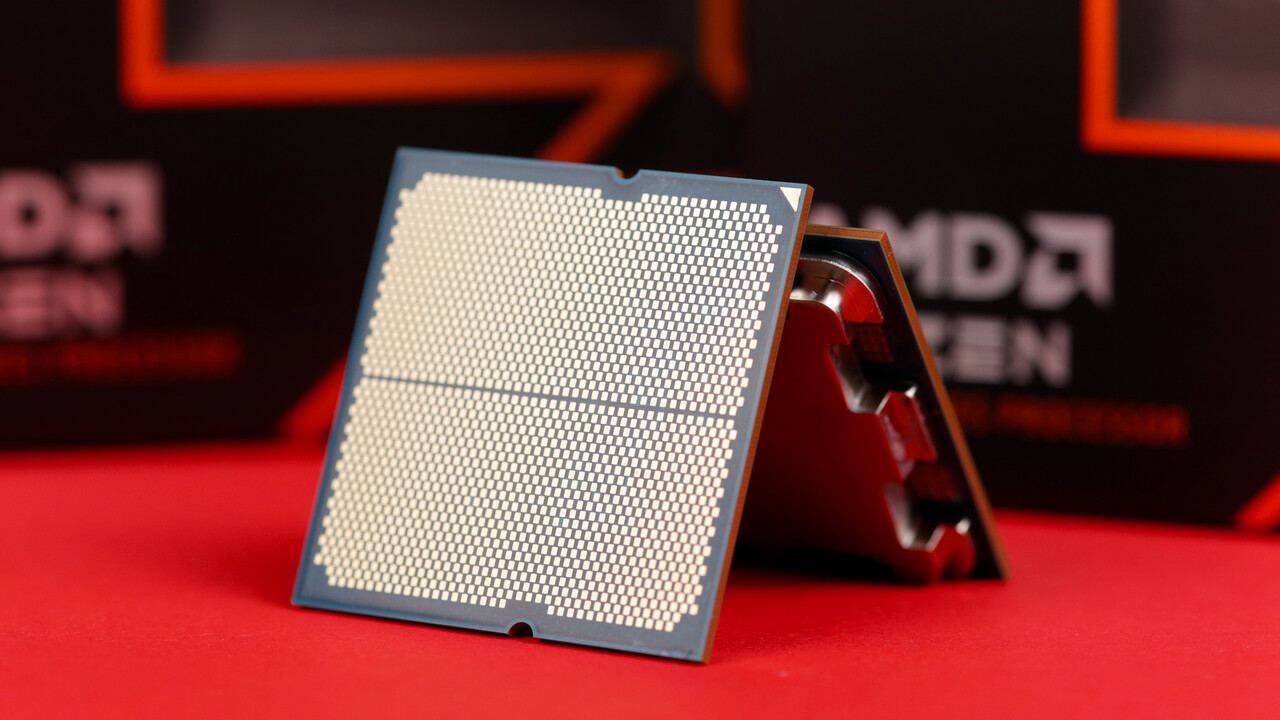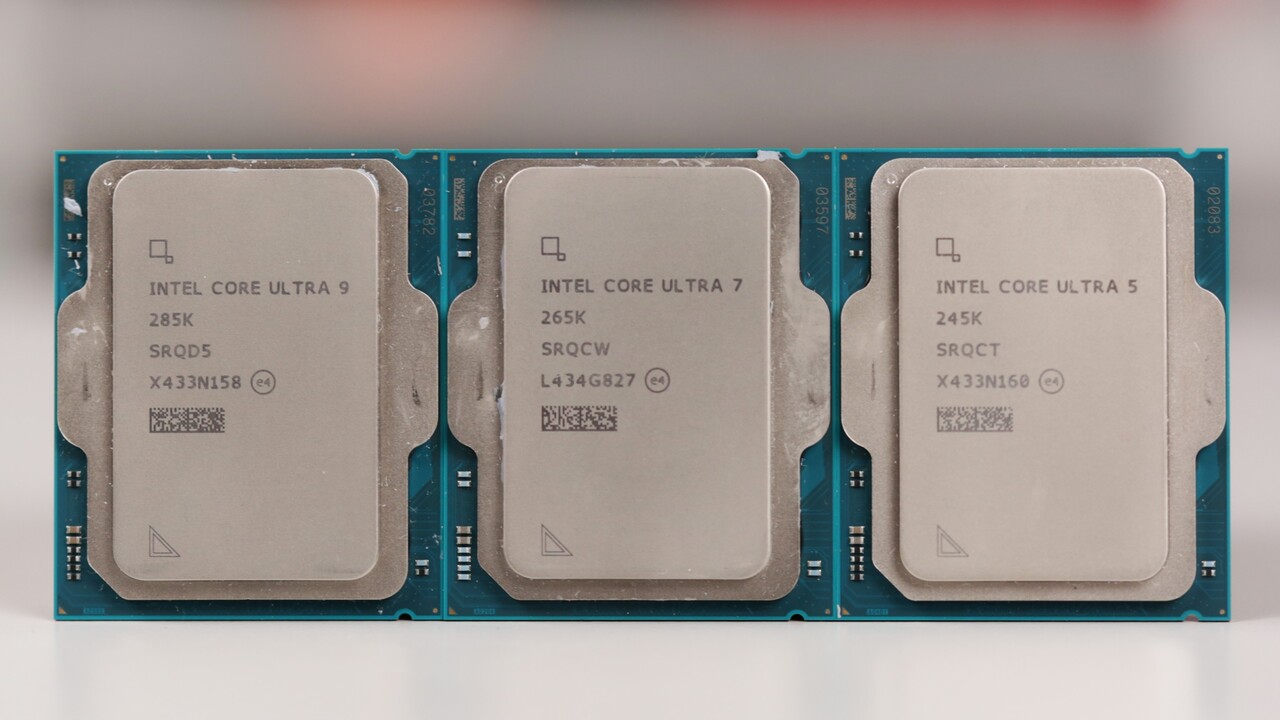Windows 10 versus Windows 11 in the test: gaming performance within the CPU limit with and without HVCI in comparison 353 comments
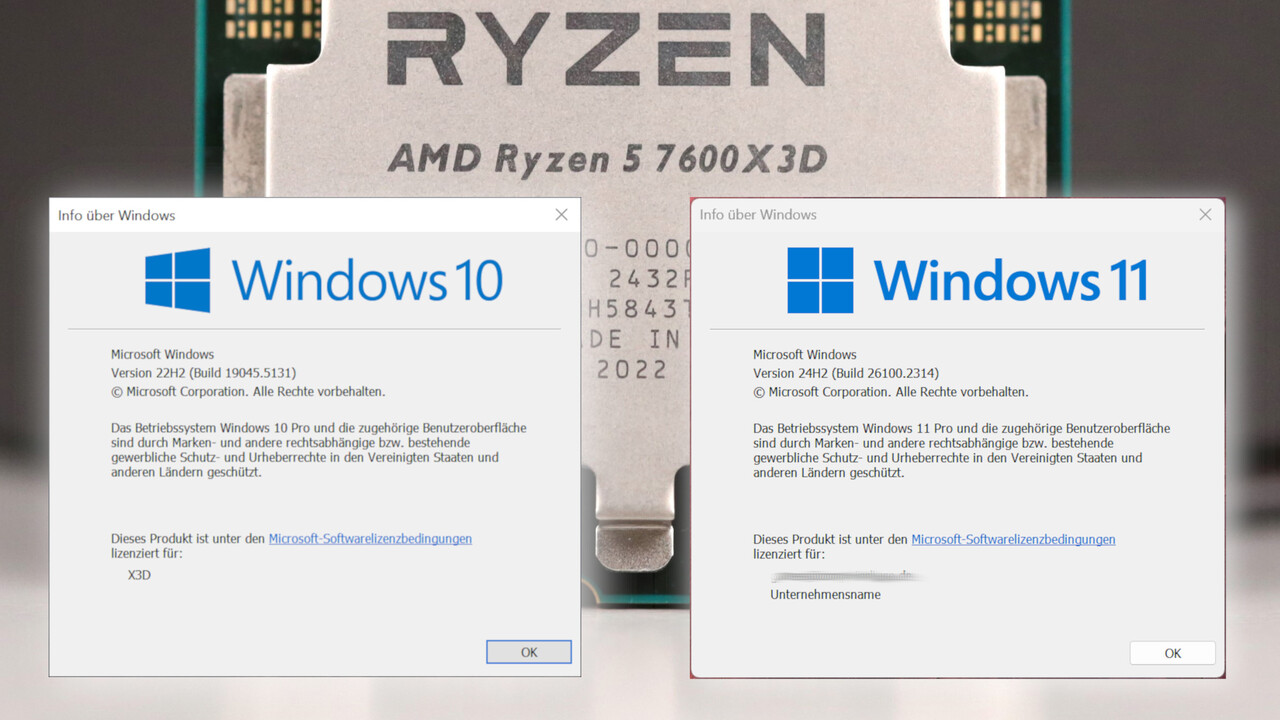
Does Windows 10 still offer more gaming performance than Windows 11, or has the Ryzen performance patch for W11 24H2/23H2 changed that? Techtip created new benchmarks on an AMD Ryzen 5 7600X3D and also looked at the comparison between HVCI disabled (W10 by default) and HVCI enabled (W11 by default).
Table of Contents Gaming Performance at CPU Limit with and without HVCI in Comparison Windows 10 vs. Windows 11 HVCI: “Default” Configured DifferentlyHVCI On/Off vs. HVCI On/Off Gaming BenchmarksFPS and Time Performance Index image Anno 1800 Baldur’s Gate 3 Cities Skylines II Cyberpunk 2077 F1 24 Frostpunk 2 Ghost of Tsushima Horizon Forbidden West Outcast A New Beginning Senua’s Saga: Hellblade II Star Wars Outlaws Starfield Warhammer 40,000: Space Marine Application Benchmarks Conclusion
Windows 10 vs. Windows 11
Officially, Windows 10 no longer offers any new features since the big update to version 22H2. Everything that came out as updates afterward was about security and fixing major security vulnerabilities. But that will only last until October at the end of 2025. Windows 11, on the other hand, currently receives several updates each month, as well as one major feature update each year, most recently to Windows 11 version 24H2. For gamers with a Ryzen processor, this update brought a very influential Ryzen performance patch, which was also distributed for Windows 11 23H2 – Windows 10, however, left empty-handed.
HVCI: “Default” configured differently
A comparison between Windows 10 and Windows 11 is easy on paper at the end of 2024, but in practice there are a few things to consider to be able to make a correct judgment on gaming performance.
The main point is that Windows 10 is not as security-focused as Windows 11. The Windows Core Isolation and Memory Integrity security features found in Windows 10, for example, are still “by default” even in version 22H2, although all the requirements for its use are present in the BIOS. On a current Windows 11, however, the exact opposite happens. In other words: if you upgrade from Windows 10 to Windows 11 on the same system, the status of these security features also changes.
Core Isolation is a Microsoft Windows security feature that protects important core Windows processes from malware by isolating them in memory. To this end, these core processes are executed in a virtualized environment.
Memory Integrity, also known as Hypervisor Protected Code Integrity (HVCI), is a Windows security feature that makes it more difficult for malware to use low-level drivers to hijack your computer .
Microsoft
Few users, with the exception of a few specialized forums such as Techconseil, change this setting manually. So is comparing default settings the only real method or is it necessary to create the same sign manually?
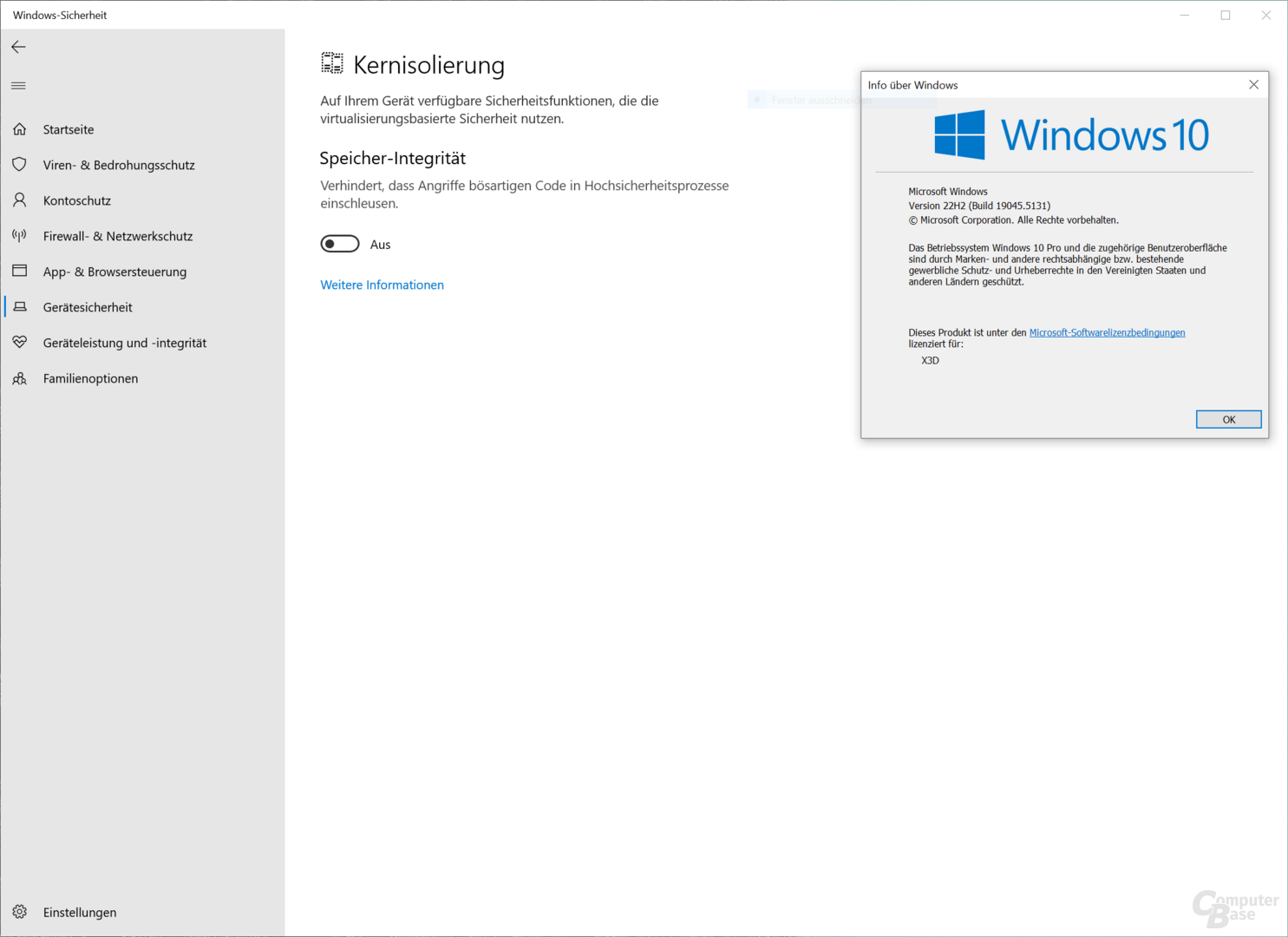 HVCI is disabled by default in Windows 10
HVCI is disabled by default in Windows 10
HVCI on/off vs HVCI on/off
Techconseil decided to test all three cases: Windows 10 without HVCI versus Windows 11 with HVCI, i.e. the out-of-the-box case, as well as a direct comparison of the two platforms without and with the feature security.
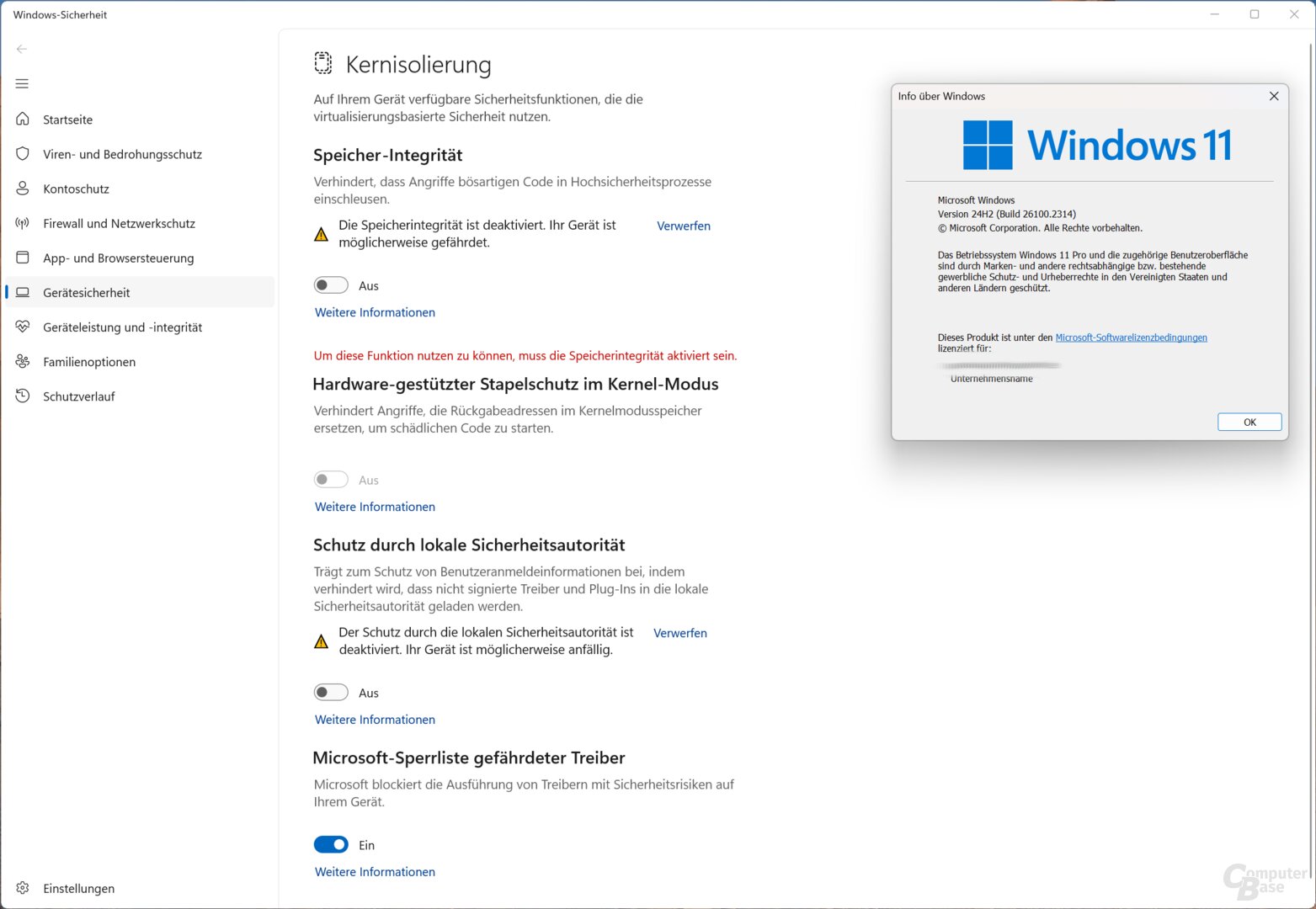 In Windows 11, you have to do it manually on a current system to disable the feature in Windows (or via BIOS).
In Windows 11, you have to do it manually on a current system to disable the feature in Windows (or via BIOS).
Gaming Benchmarks
All of the following benchmarks were recently created for the Intel Core Ultra 200S running Windows 11 24H2 test in October, as the four main reasons mentioned below have already made the summer benchmarks obsolete again. The AMD Ryzen 7 9800X3D test used the same configuration. The Ryzen 7 7800X3D was even retested with the BIOS used for the Ryzen 7 9800X3D, the same goes for the AMD Ryzen 5 7600X3D.
Windows 11 24H2 or an optional update to Windows 11 23H2 significantly increases AMD Ryzen’s gaming performance across generations, while Intel Core leaves empty-handed. (Details)New BIOS updates for Ryzen 9000X with new AGESA versions (Details)Intel has released another microcode update for the 13th and 14th generation Core processors. (Details) Countless games have received updates, some of which have had a significant impact on performance.
FPS and frame time performance evaluation
Windows 10 is still a bit faster than Windows 11. In the standard settings of both operating systems, i.e. HVCI disabled in Windows 10 and HVCI enabled in Windows 11, this actually becomes more than a small measurable difference. In particular, titles like Cyberpunk, which have always been prone to this, continue to show double-digit differences.
The result is still remarkable, after all, the Ryzen performance patch and the new 24H2 update were only available for Windows 11. Apparently, this interaction now fixes some things that previously took away a lot of performance, like the functionality of additional security. The difference between HVCI enabled and disabled is now much smaller in Windows 11 than in Windows 10 if the setting is adjusted there.
For Windows 11, however, we can conclude that disabling security features is no longer necessary. Of course there may be the famous exception in this or that game, but on average the drop in performance has become negligible.
Year 1800
Baldur’s Gate 3
Cities Skylines II
Cyberpunk 2077
F1 24
Frostpunk 2
The Ghost of Tsushima
Horizon Forbidden West
Pariah A new beginning
The Saga of Senua: Hellblade II
Star Wars Outlaws
Star Field
Warhammer 40,000: Space Marine
Application benchmarks
A quick detour through the applications: there are practically no measurable differences here; Overall, the advantage is Windows 11 in the latest version. Enabling or disabling HVCI makes no difference in Windows 10; In an office and production environment, the system lags slightly behind Windows 11.
Ultimately, minimal differences have no influence on consumption values; the processor not only does the same thing, but also consumes the same amount.
Conclusion
Windows 10 still has a small advantage over Windows 11 when it comes to gaming performance on a modern PC with an X3D processor out of the box. But this advantage is largely due to the fact that security features are not immediately active after installation in Windows 10. Windows 11 ultimately starts with different signs and therefore has to take a step back.
If the signs are reversed in the same way, there is almost a deadlock between the two operating systems. Windows 11 on a
The bottom line is that the differences between the latest Windows 11 and a fast Windows 10 on a current Ryzen processor are ultimately only minimal. As Windows 10 expires anyway, customers will need to upgrade to Windows 11 in the coming months, but they can now do so with a clear conscience.
Was this article interesting, useful, or both? The editorial team appreciates any support from Techoutil Pro and disabled ad blockers. Learn more about ads on Techconseil.
Topics: AMD Operating Systems Gaming Graphics Cards Ryzen Windows Processors Windows 10 Windows 11

Marc deciphers processors by testing their performance for gaming, content creation, and artificial intelligence.
